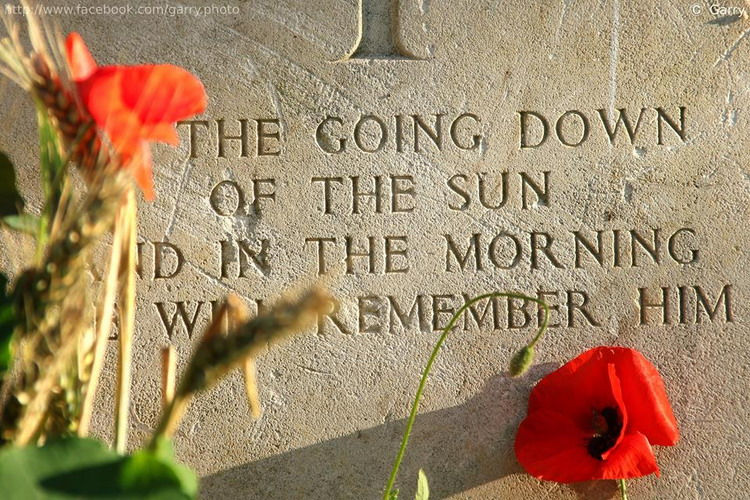
Remembering the Fallen: on this day in 1915, Private Herbert Francis Burden, 1st Battalion, the Northumberland Fusiliers, was executed at Vlamertinghe Camp in the Ypres Salient.
He is one of over three hundred British and Commonwealth soldiers who were executed by firing squad during the Great War, most of them charged with desertion. His court martial lasted twenty minutes, he was given the right to legal representation but not the right to appeal, neither was he given a medical examination, and he was not requested to be present at his own trial. In 2006, after a fifteen-year campaign, he was pardoned along with three hundred and five others. It is Private Burden’s likeness which was used for the statue at the Shot At Dawn memorial in the National Memorial Arboretum near Alrewas, in Staffordshire.
Private Burden, from Catford in London, had joined the Queen's Own Royal West Kent Regiment in 1913, when he was fifteen years old, and at some point after the outbreak of the Great War he transferred to the Northumberland Fusiliers. His company commander referred to him as being of “inferior physique” - recruiters accepted under-age boys who could either pass for older or looked strong enough to fight, and while many showed the physical and mental capabilities required, this does not appear to have been true in Private Burden’s case.
In the middle of June, 1915, Private Burden reported sick and spent eleven days in hospital (the cause is unknown); on his return, despite appearing still quite ill, he was assigned to a work party ordered to dig out trenches. On hearing that the brother of a close friend had been killed, he sought out his friend to console him, and when asked about it stated that he had received permission from an officer, who was not subsequently questioned. His battalion had been so depleted that there was no-one who knew him well enough to provide a character reference, and his record showed that he had been absent before for short periods. Although morale in his battalion was high and it was acknowledged that an execution was not necessary as a deterrent, he was found guilty of desertion and sentenced to be executed. Junior officers on court-martial panels were required to give their opinions first, many chose not to go against the opinion of the senior officer who had preferred the charges, so sentence of death was often passed by the junior officer and confirmed by his superiors.
Private Burden was executed by firing squad at dawn three days after his trial, at the age of seventeen, an age at which he was too young to have even been on active service.





